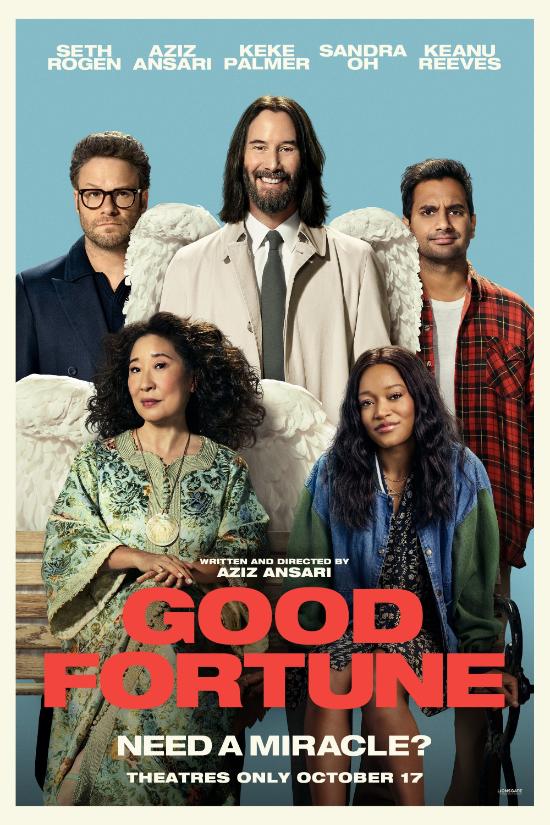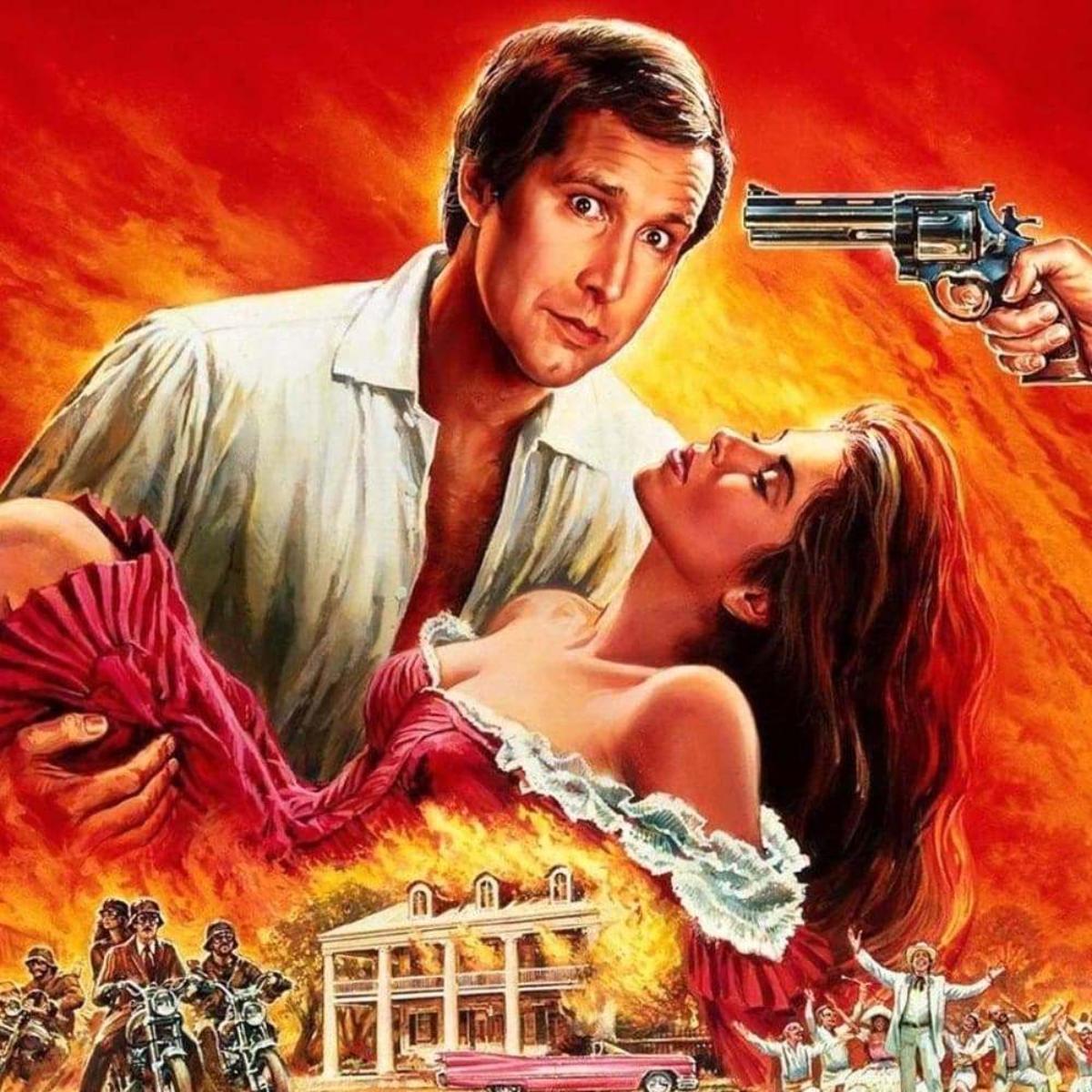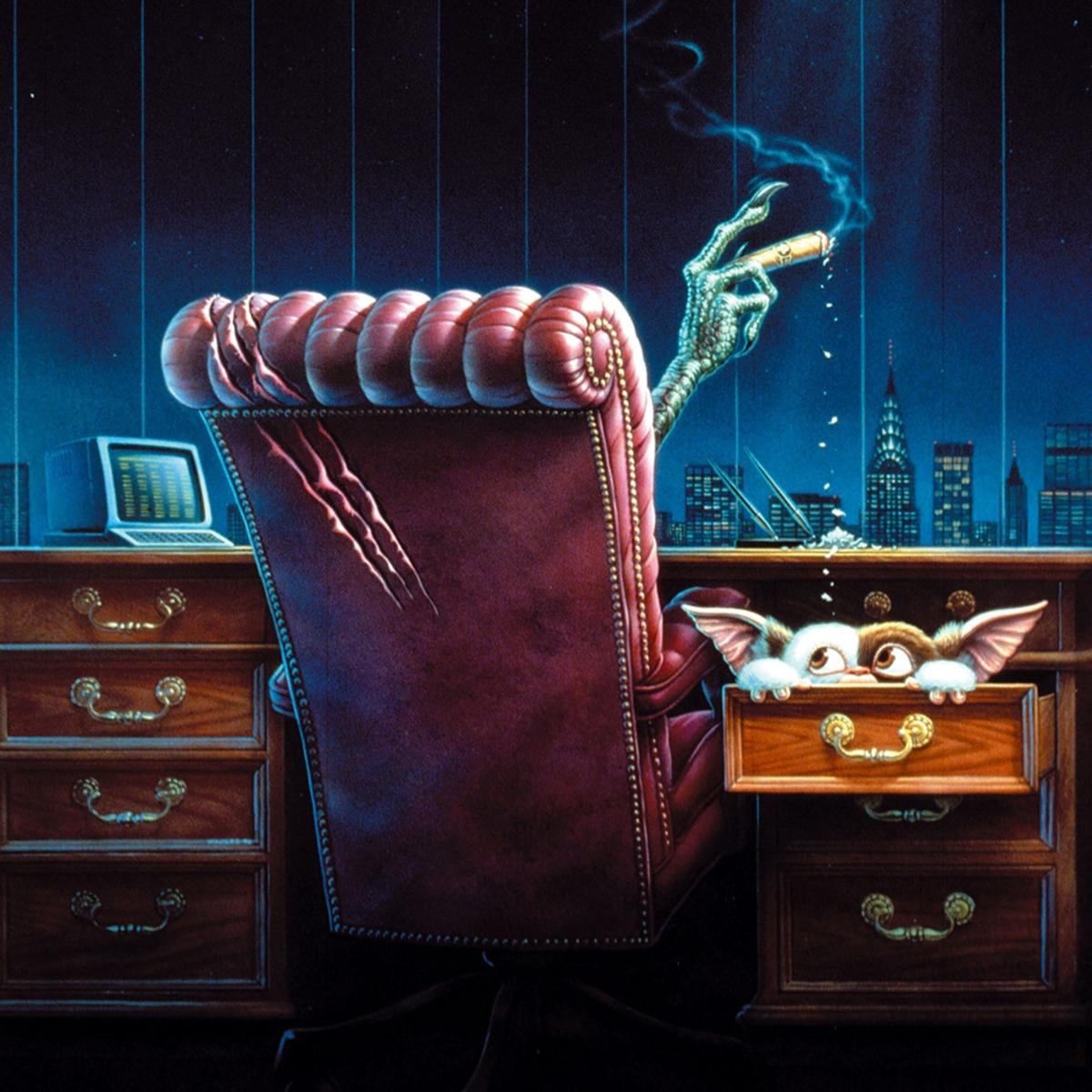It should be a truth universally acknowledged, that an audience in possession of Good Fortune, must be in want of change.
Aziz Ansari’s Good Fortune takes a premise that could easily have been an SNL sketch stretched way past breaking point, yet somehow it holds together long enough to make its cosmic swap-shop of morality, class, and self-worth watchable and surprisingly provocative.
Ansari, hustling as writer, director and star, casts himself as Arj, a documentary maker scraping by with gig work, whose life is flipped upside down when a well-meaning but hopeless guardian angel, Gabriel (Keanu Reeves), decides to run a celestial experiment. Gabriel’s bright idea: switch Arj’s body with that of Jeff (Seth Rogen), a smug tech bro success story whose easy abundance has dulled his humanity. The result is half fantasy, half social satire, a life-swap parable that would probably make you laugh if it didn’t make you so sad and angry too.
Reeves is, unsurprisingly, the film’s MVP. Playing Gabriel as a cosmic entry-level desk jockey with the earnest frustration of a man losing patience with the lack of opportunity for advancement, blocked at every turn by patronising middle management Sandra Oh, servicing sass and sagacity in equal measure as head angel Martha. He’s both absurd and oddly sincere, a performance that acts as something of a gyroscope for the film’s shifting tones and keeping his angelic nature tethered to something human rather than whimsy. Rogen does what Rogen does best – amiable bluster with a few flashes of depth – and manages to make his tech bro character both likeable and relatable, an achievement which should not be underestimated. Ansari, while serviceable as the everyman, seems more comfortable as the film’s conscience than its emotional core, a role he cedes instead to Keke Palmer, who brings a sharp sense of morality and clear-headed pragmatism to Elena, the grounded activist whose push for fair treatment at work gives Good Fortune its foundational credibility as a social critique.
Ansari’s direction is assured enough to suggest confidence, even if it occasionally reveals his inexperience. The pacing wobbles; there’s a sense he’s trying to cram a miniseries’ worth of observations into ninety-eight minutes, but his instincts are good. He trusts his cast, allows the jokes to breathe, and never lets the fantasy framework overwhelm the story. The more fanciful elements support the themes rather than showboating and if things are a little rough around the edges, that rawness gives the film a certain scrappy charm.
What makes Good Fortune impactful, if not entirely successful, is its earnest attempt to unite heavenly hijinks with economic critique. Ansari isn’t content with the Christmas Carol-esque “rich man learns humility” arc, he wants to ask something trickier of today’s neo-Dickensian economic divide: does empathy require poverty, or can comfort coexist with conscience? Good Fortune doesn’t really come close to answering that question. Its heart says yes, but it likes all its characters too much for its head to prosecute them properly.
Still, there’s something refreshing about a studio comedy that wants to mean something beyond its runtime. Beneath the uneven structure lies a film that believes in the importance of kindness, the power of community and the absurdity of expecting divine meddling in human affairs to solve our problems. Good Fortune might not change your life, or anyone’s fortune – Ansari aside – and for all its sincerity, the film’s politics remain a little too broad to sting, a little too kind to bite. But it might be enough to shake some of its audience out of their complacency, or complicity.










